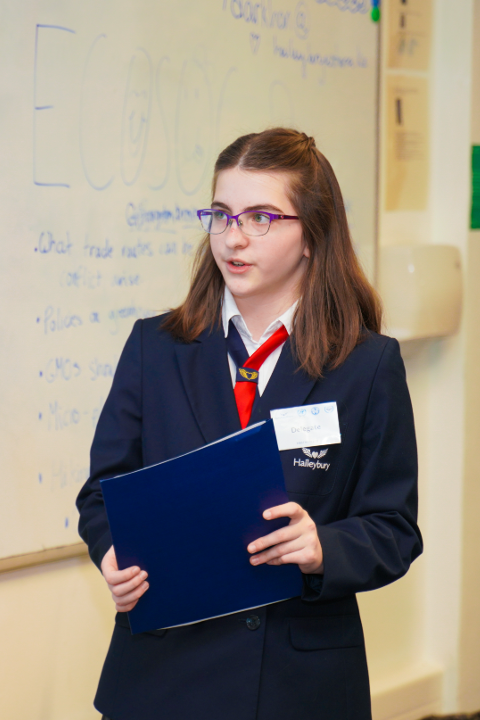- About Haileybury
- Admissions
- Well-being
- Events
- News
- Contacts
- Payment
IGCSE
The IGCSE is an international passport to progression and success. It is recognized around the world by employers and universities as evidence of academic ability.
IGCSE is the international version of the GCSE examinations taken by pupils in the UK at the end of Year 11
The international General Certificate of Secondary Education (International GCSE) is an international qualification for students – usually aged 14-16, which prepares them for further academic study.
The IGCSE is the world’s most popular international qualification for 14-16-year-olds. It is taken in more than 160 countries. More than 3000 schools worldwide offer IGCSEs and many of the top UK independent schools have recently switched to IGCSEs.
Recognition and acceptance
The IGCSE is an international passport to progression and success. It is recognized around the world by employers and universities as evidence of academic ability. The UK university admissions service (UCAS) regards IGCSEs as the equivalent to GCSEs.
Pupils take International GCSEs/GCSEs in a range of subjects offered by Cambridge International Examinations (CIE), who are part of the University of Cambridge. At the end of the two-year course, after successfully passing the exams, pupils are awarded these world-recognised certificates in each subject, ready for the next stage of their education.

The Examinations
There are many types of assessment to suit different learners – oral, coursework and practical. This broadens opportunities for students to demonstrate their learning, particularly when their first language is not English.
Look carefully at the assessment sections in the options booklet – play to your strengths – Do the assessments contain coursework, exams, essays, or short questions?
Grading system
International GCSEs are graded from A*, which is the highest grade available, followed by grades from A to G. Although getting any of these grades means that a candidate has passed the exam, many universities and employers regard getting a C or better in a subject as important. We would expect our pupils to be capable of getting C grades or better in their exams. Many pupils gain much higher grades than this, with a number gaining A and A* grades across a wide range of subjects.
In Years 10 and 11 everyone takes English (as a First or Second Language; English Literature is also an option), Mathematics, Sciences and a Modern Foreign Language. Pupils are also expected to study Kazakh to help them appreciate the language and culture of the country and prepare them for their future as global citizens.
How to choose subjects?
It is important that you choose your subjects wisely. On the whole, your best choices will be the subjects that you enjoy most and in which you think you are most likely to be successful. However, there are some subjects that are either essential, or at least very important, for some careers. If you have plans at this stage to follow a particular career, you must find out what subjects are needed so that you do not drop the wrong ones at this stage.
What universities accept IGCSE qualifications?
All universities accept IGCSE qualifications.
I have recently joined Senior School at Haileybury Astana. Will I still be eligible for taking the examinations?
Please discuss this matter with the Deputy Head Academic Senior School, Ms Andrea Angus.
Can you tell me more about the teaching staff?
Here, at Haileybury Astana, we have a fully qualified teaching staff who have vast experience of teaching in international schools.